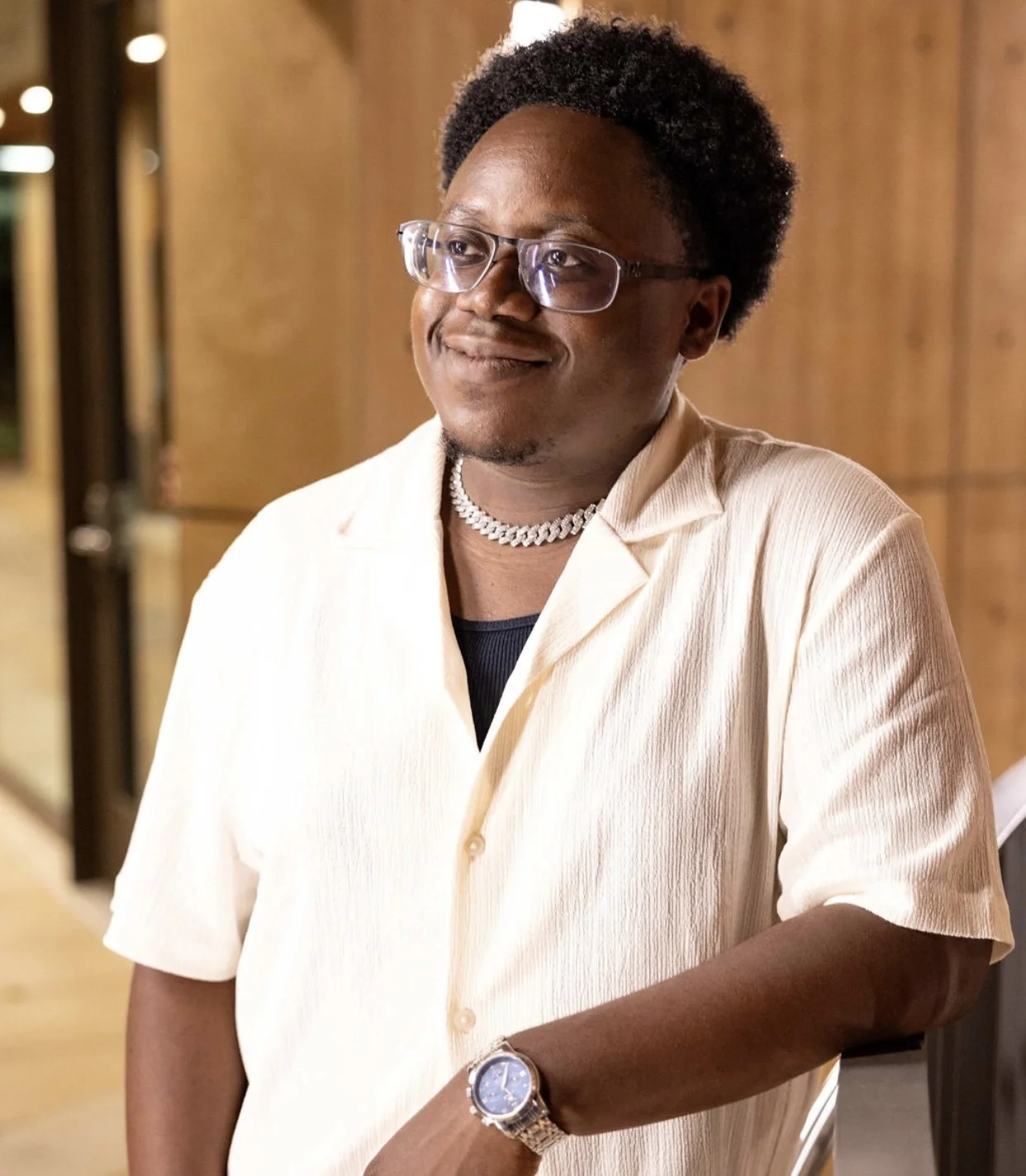Black Lives in Green Chains
Oluwaseun Ogundimu
“The natural environment is one of the most under-appreciated factors that contribute to gun violence. Studies have shown that by simply increasing the number of green spaces in a city, one can lower urban crime considerably. Greenery and urban beautification have also been shown to decrease stress and anxiety and boost social connectedness, both of which can strongly lower someone’s risk of engaging in gun violence.”
“Black Lives in Green Chains'' delves into the violence built into the urban environment of Wilmington, Delaware, drawing attention to how the traumas of living in a high-risk inner city can foreshadow imprisonment, pain, and loss. His work also acts as a call to action for a naturalized, demilitarized, and humanized environment in Wilmington. The artist led an ethnographic survey to gather insights from students, community leaders, police, and more. These insights were translated into a song reflecting deep-seated anger and multifaceted critique, underscoring a need for change. Through original music written, produced, and performed by the artist (with a feature from Yung Raylo, a collaborating vocalist), and a written opinion editorial that captures archival evidence of Wilmington’s urban violence and the community response to it, Black Lives in Green Chains not only explores the multidimensional contributions to Wilmington’s gun violence crisis, but they propose critical solutions that can pave a path away from it as well.
“It isn’t a privilege to live in a supportive community unaffiliated by gun violence,
it is an expectation.”
Oluwaseun Ogundimu
Black music does more than tell stories; it defines a moment.
I realized this the first time I walked into a black church in Delaware. Hearing the complexity of the basslines, drum rolls, piano melodies, and vocal riffs, I was more than astonished. The music presented to me a testimony fueled by the emotions of every person in the room. From the musical repetitions to the unscripted changes in pace, I could feel the power behind each and every note. That moment gave me a sense of proximity to the performance, allowing the musicians to captivate my attention for hours. Soon after this experience, I began studying music. At just eight years old, I desired to create the kind of music that could impact listeners like the church music did to me. I started off by studying the works of great black gospel artists such as Hezekiah Walker, Israel Houghton, and Marvin Sapp. As my skills grew, I expanded to other styles of black music, from jazz and hip hop to afrobeat. The goal behind my music always remained the same though. Every song was an opportunity for me to chase the moment that I felt in the church. It is this chase that has led me to where I am today.
As a gospel musician and hip hop and afrobeat producer/songwriter, I constantly seek to use my melodies to communicate important messages and moments to listeners. Having spoken to numerous individuals devastated by gun violence in my home community of Delaware, I designed my project to give audiences a powerful encounter with the issue. My song, Black Lives in Green Chains, draws from the complexities behind the issue of gun violence in Delaware, connecting environmentalism, capitalism, social community, and other topics to the gun violence epidemic. The project consists of two parts: an article providing an understanding of the gun violence crisis and a song to give a feeling to it. Simply put, Black Lives in Green Chains is more than a storytelling project. It is a chance to live in a moment of crisis that far too many Delawareans call a reality.
